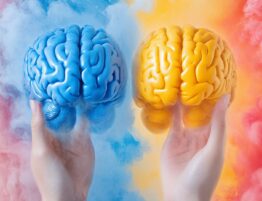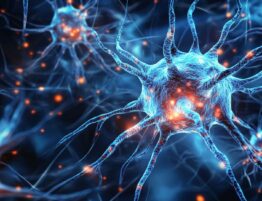Scientists worldwide are exploring the connection between neurogenetic illnesses and mental health. Is depression a neurological disorder? This question is often surrounded by mystery. Everyone needs to understand the complexities involved. There is a massive variety of neurological disorders. Clinical presentation highlights a profound connection between brain function and mental health. Depression is a pervasive issue. It is increasingly viewed through the lens of neurology. It happens because of its association with structural and functional brain abnormalities.
Is mental illness a disease of the brain? Comprehending this aspect is crucial. It leads to more effective treatments and interventions. This approach underscores the need for a holistic understanding. Let’s examine all the details together.
Comorbidities: Mental Health and Neurological Disorders
They often coexist with psychiatric conditions. There is a connection between the nervous system and mental health. Depression, anxiety, and cognitive impairments frequently accompany various diseases. They are Parkinson’s, Alzheimer’s, and multiple sclerosis. Understanding this interplay develops comprehensive treatment approaches. They will address neurological and mental health aspects. It ultimately improves patient outcomes and quality of life.
Prevalence of Comorbidities
Patients with neurological illnesses frequently experience concurrent psychiatric issues. They impact their overall health and quality of life. These overlapping conditions necessitate integrated treatment strategies. They address neurological and psychiatric needs. Such treatment approaches enhance patient care and outcomes.
Examples of Common Comorbid Conditions
There are common comorbid conditions frequently observed in patients with neurological disorders. These include:
- Neurological Depression: This condition is common in Parkinson’s and Alzheimer’s. Usually, it appears in multiple sclerosis and stroke patients.
- Anxiety: This symptom is often seen in epilepsy. Parkinson’s and migraine sufferers face this condition.
- Psychosis: This condition is usually observed in Parkinson’s and Huntington’s disease.
- Bipolar disorder: Such illness is always linked with multiple sclerosis and epilepsy.
- Obsessive-compulsive disorder (OCD): This condition is usually found in Parkinson’s and Tourette syndrome.
These comorbid conditions require comprehensive treatment approaches. They address neurological and mental health aspects. Such treatment plans improve patient outcomes.
How Neurological Disorders Can Impact Mental Health
How do mental illnesses affect the brain? These illnesses profoundly impact psychological health through various mechanisms. They are alterations in brain structure and neurochemical imbalances. Also, such disorders affect the chronic stress of living with a debilitating condition. Parkinson’s disease, epilepsy, and multiple sclerosis often lead to psychiatric symptoms. Individuals face depression, anxiety, and cognitive impairments. Physical limitations, chronic pain, and social isolation are usually associated with these disorders. They further exacerbate mental health problems. Such conditions highlight the necessity for integrated treatment approaches. They address neurological vs. psychological needs.
Stressors of Living with a Neurological Disorder
This aspect introduces several significant stressors. They can impact an individual’s mental health:
- Social Isolation: Physical and cognitive impairments can lead to reduced social interactions. They increase feelings of loneliness and depression.
- Caregiver Burden: The need for constant care can strain relationships. It may create emotional and physical stress for the individual.
- Stigma and Misunderstanding: Individuals with mental brain illness often face stigma. They may feel misunderstood by others. It can lead to social exclusion and a decreased sense of self-worth.
These stressors highlight the importance of providing comprehensive support. They include medical, psychological, and social interventions.
The Emotional Toll of Neurological Conditions
These illnesses cause profound damage. It often leads to mental disorders caused by brain damage:
- Post-Traumatic Stress Disorder (PTSD): Seen in individuals who have experienced traumatic brain injuries. Sometimes, it appears in patients with strokes.
- Cognitive impairments: Such conditions usually appear in Alzheimer’s. Also, they appear in multiple sclerosis and traumatic brain injuries.
- Emotional Dysregulation: Huntington’s disease can cause significant disturbances.
Addressing these challenges requires tailored approaches. They integrate neurological and psychiatric care. It supports mental health alongside physical well-being.
Biological Links Between Mental Health and Neurology
Understanding this point is crucial in elucidating how neurological conditions impact psychological well-being. Emerging research highlights intricate connections between brain function and neurotransmitter systems. There is a difference between neurological and psychological symptoms. They appear in disorders such as Parkinson’s disease, epilepsy, and Alzheimer’s. This intersection underscores the need for integrated treatment approaches. They address neurological and psychiatric aspects for comprehensive patient care.
Brain Chemistry and Mental Health
Let’s check out this point. Here is the table of the brain chemistry and its relation to mental health:
| Neurotransmitter | Function | Related Mental Health Conditions |
| Serotonin | Regulates mood, sleep, and appetite. It contributes to feelings of well-being. | Depression, anxiety disorders, OCD. |
| Dopamine | Involved in reward-motivated behavior, motor control, and emotional responses. | Parkinson’s disease (low), schizophrenia (high dopamine). |
| Noradrenaline (Norepinephrine) | Controls alertness, arousal, and stress response. | Anxiety disorders, PTSD, depression. |
| GABA (Gamma-Aminobutyric Acid) | Inhibits neurotransmission and calms neural activity. | Anxiety disorders, epilepsy, insomnia. |
| Glutamate | An excitatory neurotransmitter. It is generally involved in learning and memory. | Schizophrenia, mood disorders, epilepsy. |
| Endorphins | Natural pain relievers induce feelings of pleasure and euphoria. | Runner’s high-stress reduction. |
This table provides a simplified overview of critical neurotransmitters and their functions. It shows their association with various mental brain illnesses.
How Neurological Conditions Might Influence Brain Chemistry
It happens through several mechanisms. For example, Parkinson’s and Alzheimer’s alter the production and processing of neurotransmitters. They are dopamine and acetylcholine. Such neurotransmitters affect mood and cognitive function. Epilepsy can disrupt the balance of excitatory and inhibitory neurotransmitters. They are glutamate and GABA. These changes can exacerbate symptoms of depression, anxiety, and cognitive impairments. They highlight the complex interplay between neurological disorders and mental illness.
The Role of Psychiatry in Neurological Care
It is crucial in the comprehensive care of patients with neurological disorders. They address the intricate interplay between mental illness and the brain function:
- Psychiatric Assessment: Psychiatrists conduct thorough evaluations. They identify and treat coexisting mental health conditions. Among them are depression, anxiety, and psychosis in neurological patients.
- Psychotherapy: Cognitive-behavioral therapy (CBT) or supportive counseling helps patients cope with emotional challenges. Also, they allow them to improve overall well-being.
- Education and Support: They educate patients and caregivers about the disorder’s psychological aspects. Such aspects offer strategies to enhance coping skills and quality of life.
- Research and Innovation: Psychiatry contributes to research. They aim to understand how mental health conditions affect brain function. It guides the development of novel treatment approaches.
Understanding how mental health affects the brain tailors effective treatment strategies. They promote optimal neurological function and mental well-being in patients with complex conditions.
Ways of Managing Mental Health with a Neurological Disorder
This step requires a comprehensive approach. It addresses the physical and psychological aspects of the condition. Individuals navigating Parkinson’s disease or multiple sclerosis often contend with significant emotional challenges. Effective management strategies encompass medication, therapy, lifestyle adjustments, and support networks. They enhance well-being and quality of life amidst the complexities of neurological health.
Medical Treatments and Therapies
They often encompass psychological vs. neurological approaches to optimize care. Here are effective medical treatments and therapies:
- Medication Management: Doctors prescribe psychotropics. They can reduce mood disturbances and cognitive impairments. Also, such medications consider interactions with neurological treatments.
- Physical Treatment: Rehabilitation programs focus on improving motor function and mobility. They offer various exercises and techniques. They are generally tailored to specific conditions. For example, stroke or multiple sclerosis.
- Cognitive Behavioral Therapy (CBT): Psychologists and therapists provide it. CBT helps patients manage emotional distress, anxiety, and depression. It identifies and changes negative thought patterns and behaviors.
- Speech Therapy: Speech-language pathologists assist patients with mental brain illnesses. They are Alzheimer’s or traumatic brain injury. Such pathologists improve communication skills and cognitive function.
- Occupational Treatment: These therapists help individuals regain and develop skills. They are necessary for daily living. Among such skills are self-care and work-related tasks. They address the physical and psychological aspects of recovery.
- Neurosurgery: Neurosurgeons may perform useful procedures. They are deep brain stimulation for Parkinson’s or epilepsy surgery. Such procedures reduce seizures. They address neurological symptoms and their impact on mental health.
Integrating these treatments ensures comprehensive access. It addresses the diverse needs of patients with neurological disorders. Such treatment plans enhance their functioning and quality of life.
The Power of Self-Care and Lifestyle Changes
Self-care and lifestyle changes are crucial in managing both the nervous system and mental health alongside neurological disorders:
- Regular Exercise: Physical activity improves mood, reduces stress, and enhances overall well-being. It can also help manage symptoms. They are stiffness in Parkinson’s disease or fatigue in multiple sclerosis.
- Healthy Diet: A healthy diet should include fruits, vegetables, and omega-3 fatty acids. They support brain health and may reduce inflammation. It is generally associated with Alzheimer’s or epilepsy.
- Stress Management: Mindfulness meditation, deep breathing exercises, and yoga can lower stress levels. They benefit neurological and mental health.
- Adequate Sleep: This aspect is essential for cognitive function and emotional regulation. Sleep disorders are common in mental brain illnesses. Consistent sleep schedules can improve symptoms.
- Social Support: Maintaining relationships and participating in social activities is vital. It can reduce feelings of isolation and depression. These signs are commonly experienced with neurological disorders.
- Mindfulness and Relaxation: These techniques can ease anxiety. Also, they improve mood.
- Limiting Alcohol and Substance Use: Avoiding them is crucial. Alcohol and drugs can exacerbate symptoms and interact with medications.
Individuals should incorporate these self-care practices and lifestyle changes into daily routines. They can significantly improve the quality of life. Such practices manage neurological disorders. They foster resilience. Such tips enhance overall health.
Lone Star Neurology: Your Partner in Comprehensive Neurological and Mental Health Care
We specialize in providing comprehensive care for mental disorders caused by brain damage. Our practice integrates neurological expertise with compassionate mental health support. You may navigate conditions like stroke, Parkinson’s disease, or traumatic brain injury. Our team addresses the complex interplay between neurological and psychiatric health. Discover how we tailor personalized treatment plans. They enhance your well-being and optimize your quality of life.
Our Approach to Patient Care
We prioritize a patient-centered approach. It recognizes the nuanced relationship between neurological and psychiatric health. Here’s how we approach patient care:
- Comprehensive Evaluation: We always conduct it. These assessments help us understand the impact of neurological conditions on mental health. We address depression, anxiety, and cognitive impairments.
- Integrated Treatment Plans: Our team develops them to encompass neurological and psychiatric aspects. We use medication management and therapeutic interventions. They help us to optimize outcomes.
- Research and Innovation: We incorporate the latest therapies. They address the complexities of depression as a neurological disorder.
- Collaborative Care: We foster collaboration between neurologists, psychiatrists, and psychologists. Our team also partners with other specialists. We provide holistic care. It meets each patient’s unique needs.
- Education and Support: We offer these aspects. They help to understand the relationship between depression and neurological disorders. Our team provides resources. We support understanding and coping strategies.
We commit to personalized, compassionate care. It ensures that every patient receives comprehensive support. Our care manages their neurological condition and mental health effectively.
How We Can Help
We specialize in addressing the intricate connection between mental illness and the brain. Our healthcare providers offer expertise in treating a wide range of neurological disorders. They include:
- Epilepsy: Our team provides comprehensive care to control seizures. It also helps to manage associated mood disorders.
- Alzheimer’s Disease and Dementia: We support cognitive function and address behavioral changes. We do it through integrated treatment approaches.
- Multiple Sclerosis: Our team manages disease progression. We also address fatigue, depression, and cognitive impairments.
- Parkinson’s Disease: We manage motor symptoms and address psychiatric manifestations. Our healthcare providers also treat neurological depression and anxiety.
- Stroke: We rehabilitate patients to regain function. Our healthcare providers offer emotional support during recovery.
Our multidisciplinary team collaborates to develop tailored treatment plans. They consider neurological and psychiatric aspects. Such treatments ensure holistic care. It enhances overall well-being and quality of life. If you need a consultation, contact us.












Please, leave your review
Write a comment: